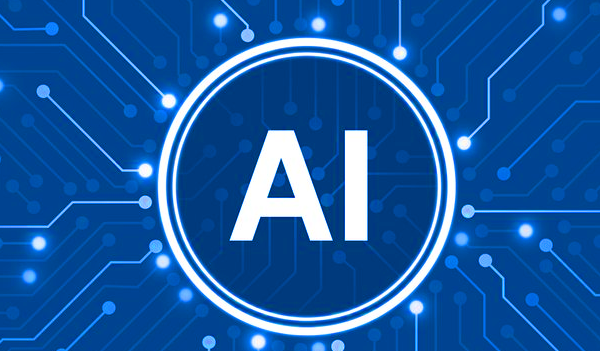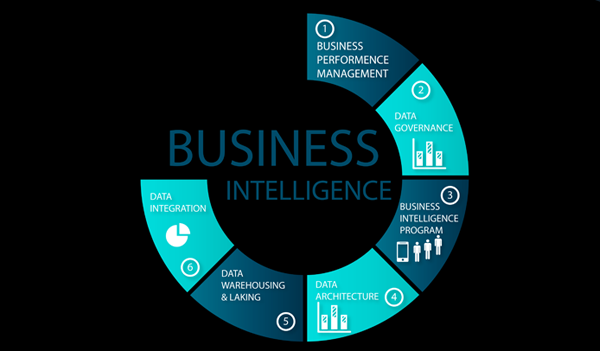Artificial intelligence (AI) is transforming the way businesses operate. From automation of processes to fraud detection and improved customer service, AI has the potential to bring countless benefits to organizations.
However, with these benefits come challenges such as data scarcity and algorithm bias. In this article, we will explore the benefits and challenges of AI in business and discuss how companies can stay ahead by embracing this cutting-edge technology.
What is ai in business?
As the volume of available data continues to expand and customer preferences become more intricate, businesses must embrace new strategies to drive growth.
Traditional methods are no longer sufficient to meet the challenges of a rapidly changing marketplace.
However, the advent of artificial intelligence (AI) has opened up new opportunities for businesses to harness customer data and generate actionable insights that can fuel growth.
AI-powered software is capable of emulating human-like intelligence, enabling businesses to unlock new revenue streams, improve customer experiences, enhance productivity and efficiency, and drive transformative change.
By leveraging the power of AI, businesses can gain a competitive edge and position themselves for sustained growth in the future.
Incorporating AI into business operations requires a fundamental shift in mindset and approach. It involves collecting and analyzing vast amounts of data to gain insights that would otherwise be impossible to obtain using traditional methods.
However, the benefits of AI-driven insights are numerous, including the ability to identify emerging trends, predict customer behavior, and optimize business operations.
Why should companies use ai?
In the 21st century, businesses face a multitude of complex tasks that are often stressful and inefficient for human employees to carry out. As the era of data dominates the business world, companies are now able to extract valuable insights to drive radical growth.
However, to thrive and remain relevant in today’s fiercely competitive market, businesses must have a unique understanding of their customers’ needs and preferences. This is where artificial intelligence (AI) comes in.
By leveraging AI, companies can now unlock the power of customer understanding and engagement, automate business processes, and boost productivity and revenue, all while reducing operational expenses.
By utilizing AI, businesses can analyze customer data and generate insights to create personalized experiences that cater to the individual needs of their customers. Additionally, AI can automate repetitive and time-consuming tasks, freeing up valuable time for employees to focus on higher-value activities.
As AI technology continues to evolve, businesses that embrace it will gain a significant competitive advantage. The power of AI-driven customer understanding and automation has the potential to revolutionize the way we conduct business in the 21st century.
Examples Of Artificial Intelligence In Business
The advent of artificial intelligence (ai) has revolutionized the way businesses operate in the 21st century. With the increasing amount of data available, companies are leveraging ai to improve their customer service, marketing strategies, and business analytics. Here are some examples of how ai is transforming the business landscape:
1. Customer service ai-powered
chatbots are changing the way customers interact with businesses. These chatbots enable customers to get real-time assistance with complaints, orders, and information requests without the need for human representatives. This disruptive innovation reduces business costs and improves customer experience.
2. Business intelligence
ai is transforming business intelligence by helping companies make sense of the vast amount of data they collect. With ai-powered tools like microsoft power bi, businesses can gain valuable insights into customer behavior, market trends, and business performance. These insights help companies improve marketing strategies, personalize customer experiences, and automate business processes.
3. Personalized and targeted marketing
ai is helping businesses to predict and target which products to market to each customer, based on their online activities. This reduces marketing costs and increases the effectiveness of marketing campaigns.
4. Product recommendation and predictive analytics
companies like netflix, spotify, and amazon use ai to understand customer preferences and provide personalized recommendations. These recommendations increase customer engagement and retention.
5. Natural language processing
ai-powered digital assistants are now able to read, write and understand languages like humans. Companies are using these assistants to automate routine tasks, generate business reports, and carry out sentiment analysis to improve their services and personalized offerings.
Artificial Intelligence In Business: Unleashing Endless Benefits And Challenges
Artificial Intelligence (AI) has brought about a significant transformation in the way businesses operate. From improved customer service to personalized marketing, AI has become a key player in enhancing business performance. Here are some benefits that businesses can gain from the use of AI:
Automation Of Processes
AI can automate routine and time-consuming tasks such as data entry, analysis and report generation, freeing up time for employees to focus on more strategic tasks. Automation leads to increased productivity, accuracy and efficiency in business operations.
Fraud Detection
AI can help businesses identify fraudulent activities, such as credit card fraud and money laundering, by analyzing patterns and anomalies in transactions.
Better Understanding Of Customers And Improved Experience Of Services Offered
AI can help businesses analyze customer data and feedback to gain insight into their needs and preferences, leading to more personalized and tailored services.
More Positive Results From Marketing Activities And Increased Revenue
AI-powered tools can provide insights into consumer behavior and preferences, allowing businesses to tailor their marketing activities to suit their target audience, leading to more effective campaigns and increased revenue.
Improved And More Reliable Customer Service
AI-powered chatbots and virtual assistants can provide 24/7 customer service, improving accessibility and reducing wait times. Additionally, AI can analyze customer data to predict potential issues and proactively provide solutions.
However, despite the numerous benefits of AI in business, there are several challenges that limit its application. Here are some of the critical factors that pose a threat to the use of AI in business:
1. Data Scarcity
For AI to work, it requires large amounts of data to train models effectively. However, there are still areas of business where data is scarce, limiting the application of AI in those fields.
2. Algorithm Bias
AI algorithms can be biased towards certain groups or demographics, leading to inaccurate results and negative consequences. Efforts are being made to address this issue, but it remains a significant challenge in the adoption of AI.
3. Limitations In Current Computing Capability
The processing power required to run complex AI models is still limited by current computing capabilities. This can limit the effectiveness of AI in some applications.
4. Threats To Data Security And Privacy
The use of AI involves the collection of sensitive information, which can be vulnerable to security breaches and pose a threat to privacy. This issue needs to be addressed to ensure the ethical and responsible use of AI in business.
Final Thoughts
Larry Page, co-founder of Google, envisions artificial intelligence (AI) as the ultimate search engine that can understand everything on the web and provide users with precisely what they need. Although this vision is still far from being realized, we are constantly moving closer to achieving it, as Page suggests.
As we continue to explore the potential of AI, we are uncovering endless possibilities that could transform the way businesses operate. Companies that want to remain competitive must be willing to embrace this technology as a guiding light and leverage its power to gain an edge in the marketplace.
By implementing AI, businesses can enhance their decision-making processes and automate their operations, leading to increased efficiency and productivity.
AI can also help organizations better understand their customers and offer personalized experiences that meet their unique needs.
However, challenges to the widespread adoption of AI still exist, such as algorithm bias and data scarcity. As we work to overcome these obstacles, the future of business looks brighter with the help of AI.
Read Also:
- Business Intelligence Analyst: Job Summary, Skill and Income
- What Is Big Data Technology? Definition, How It Works, and Uses
- Top 15 Best Business Intelligence Software for E-commerce 2024
- Marketing Database: Benefits & Examples of Implementing an Effective
- Top 15 Global Business Intelligence Companies You Should Know

